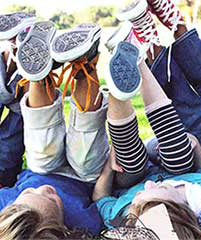Welfare cuts hit mothers
 A new analysis shows a third of single mothers are in financial hardship due to welfare policies.
A new analysis shows a third of single mothers are in financial hardship due to welfare policies.
Analysis by University of Queensland researchers has found that the risk of financial hardship for single mothers is at least double that of partnered mothers.
The “proportion of single mothers in financial hardship has not dropped below approximately 30% in the past 10 years”, said researchers Dr Alice Campbell and Prof Janeen Baxter.
It comes after an Australian Council of Social Service report found last week, one in six Australian children live in poverty.
“What we’ve seen is government actually contributing,” the executive director of Anti-Poverty Week, Toni Wren, said.
“It’s government-induced poverty.
“Decisions have been taken by governments of both persuasions over the past 20 years … that eroded and erased the gains that we had seen from the Hawke/Keating governments’ commitments to reduce child poverty.”
Those decisions include the Howard government’s move to place single parents on lower jobseeker payments when their children turn eight. Following this, the Gillard government ended grandfathering arrangements in 2012, which put 80,000 more single parents on to the lower payment.
Additionally, the value of jobseeker payments is eroding because they are indexed differently to the age pension.
The single rate of jobseeker (then Newstart) was 92 per cent of the age pension in 2002, but is down to about 66 per cent today with supplementary payments included, the experts say.
There has also been a failure to invest in social housing, a reduction in spending on family tax benefit payments and a dysfunctional child support system trying to call in an estimated $2 billion in owed debts.
When temporary coronavirus supplements were removed, the new rate of jobseeker fell to approximately 30 per cent below the poverty line.
This triggered a sharp rise in rental stress for those on Centrelink payments with commonwealth rent assistance, from 29 per cent in June 2020 to 63 per cent at June 2022.
When welfare benefits were doubled in 2020, it marked the first time in the past 10 years where the proportion of single mothers in financial hardship improved.
The Albanese government says it will not increase income support payments in the October budget, but has pledged to review the rate at future budgets.








 Print
Print